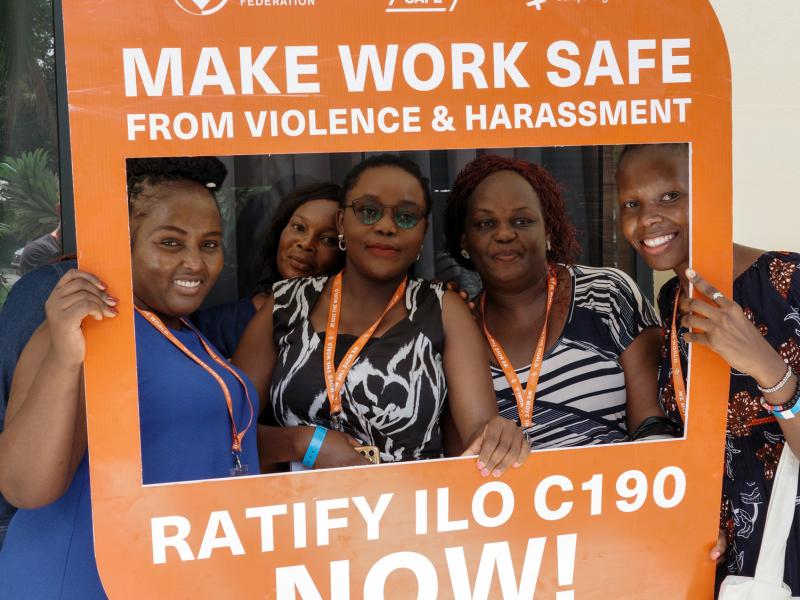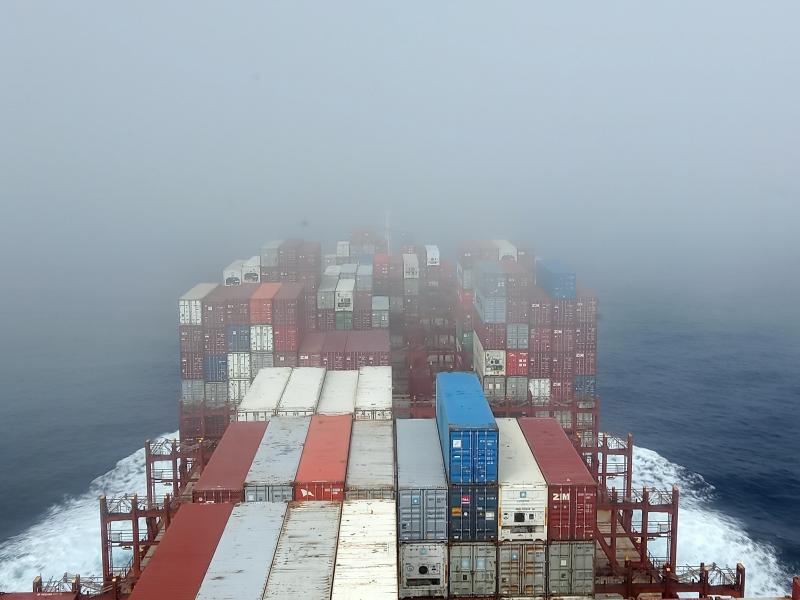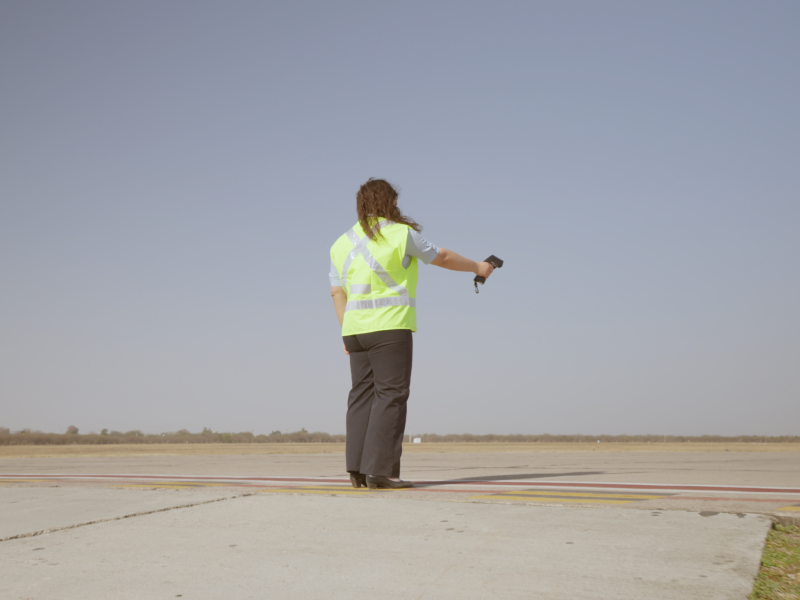“...sometimes there’s nobody to cover for us, and we could not leave to find a bathroom. We have to hold it, and it causes urinary infections. Sometimes workers relieve themselves in their trousers, which is another risk – more emotional than physical.”
Vivian Acosta has worked as a ticket clerk in the Bogotá’s TransMilenio system (which consists of several interconnected bus rapid transit lines) since 2015. She is one of the transport workers who serve the city's transport system of about eight million inhabitants and help those passengers get about by topping up their travel cards.
Vivian’s biggest challenge is accessing toilets during work hours to meet her basic needs as a human being.
“There is an agreement between the company and the owner of some business premises, which allows us to use their bathrooms. We come to work at 3.30 am, but the toilets are open at 6 am. So, we have to seek access after 6.00 am. Given how cold it gets here in Bogotá, we cannot enter a bathroom when we need it. Then, the same thing also happens on the evening shift, working shutdown hours, because these agreements end at 6.00-7.00 pm, but the system operates until eleven at night, and the workers are there until 11.15 pm. So when we need to go to the bathroom, we really cannot do so.”
Vivian says they are in difficulty managing these poor conditions as workers.
“This has caused issues for colleagues unable to resist their urges, so they have soiled their clothes. This also creates psychosocial or emotional risk through them feeling wet or dirty. Often, among my colleagues, this is not viewed as something that can happen... at any moment.”
Moreover, Vivian says many workers have suffered from urinary infections due to the lack of bathrooms.
“We have to hold it in because we may have a bathroom next to the station. But sometimes there’s nobody to cover for us, and we could not leave to find a bathroom. We have to hold it, and it causes urinary infections. Sometimes workers relieve themselves in their trousers, which is another risk – more emotional than physical.”
Vivian notes that the economic-political atmosphere of Colombia also adversely affects workers’ rights to access decent sanitation.
“Everything that’s been happening here in Colombia, with the issue of demonstrations, the issue of vandalism and the issue of blockades. All of that also has a major impact on bathroom access. We often couldn’t get to a bathroom, even if we had one nearby, due to demonstrations and damage to various premises and station infrastructure. So, we’ve always been impacted, whether by the pandemic issue or that of mobilisations. As workers, our ability to access a bathroom when needed has always been affected.”
She points out the importance of working together to design and manage city transport systems.
“They are the ones responsible for designing all this construction work that is done in the city. But really, the response that they’ve given is that this system was supposedly created only for passengers.”
According to Vivian, involving trade unions from the beginning of infrastructure planning is paramount to having decent sanitation facilities that all can benefit from.
“They now design such infrastructure, new mass-transport systems, they have never included the unions. The only ones involved in these processes have been businesspeople and the state, while the reality is that the workers have been excluded, and that is why these problems are occurring because they’ve never really considered workers’ needs.They think about how to maximise the financial gains for business people – and even for the state.”
She says the solution is evident:
“It is certainly necessary for these new systems that are being created to include proper union participation to avoid this problem.”
Safe access to decent sanitation facilities is vital for all workers, but it is an issue felt particularly acutely by women transport workers. To break down these barriers for women working in the transport industry, and the wider world of work, and to ensure dignity and safety for all workers, trade unions around the world are taking up the campaign for better conditions.
Vivan’s story is part of a new exposé of the sanitation conditions faced by workers in public transport around the world. The report, Sanitation rights are human rights: public transport worker voices, profiles the stories of public transport workers and their everyday reality of having insufficient access to safe, clean, decent sanitation facilities.







